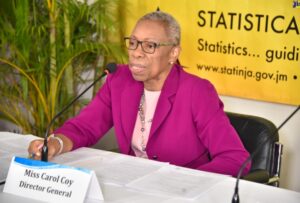
Clean-up effort highlights urgent need for better waste management
MORE than 19 boats filled with volunteers and fishermen took to the waters of Kingston Harbour on Saturday as they worked together to collect tonnes of waste, in a race to help clean up the country’s vital mangrove ecosystems. Despite their hard work, however, volunteers were struck by the overwhelming amount of waste surrounding the mangroves, and renewed their urgent plea to Jamaicans to properly dispose of their garbage so as to safeguard the nation’s marine life.
The Kingston Harbour Clean-up Project (KHCP), in collaboration with GraceKennedy Foundation, The Ocean Clean-up, and Clean Harbours Jamaica, held The Great Mangrove Cleanup Trash Tournament at Royal Jamaica Yacht Club with the aim of removing legacy waste (waste that has been accumulated in the environment over time and not properly treated or disposed of) from Kingston Harbour’s mangrove forests and beaches. Volunteers were split into teams on different boats as they went to various sections of the mangroves on Kingston Harbour, removing garbage as quickly as possible while competing for prizes.
However, some volunteers said they were surprised after seeing the high volume of garbage they collected.
“I am shocked to see so much trash coming through, and I am very much disappointed to see so many refrigerators and other waste that were stuck in our mangroves,” said Alecia Beaufort, waste manager for Clean Harbours Jamaica Limited.
She is urging Jamaicans to be more responsible with their garbage and to be more aware of the negative effects of bad garbage disposal habits.
“Reuse, recycle and reduce your waste. We do have a lot of things in store, we have a lot of things currently in place, and I believe Jamaicans need to be very much more aware of how they use plastic, how they toss anything, and so if they could be more aware it will really, really make a great difference in the project that we’re doing and in Jamaica being cleaner,” she told the Jamaica Observer.
Sharing a similar sentiment, CEO of GraceKennedy Foundation Caroline Mahfood explained that coming out of the hurricane season, it is important that more Jamaicans understand how the mangroves protect the country’s shoreline during natural disasters. She is pleading with Jamaicans to help put a stop to what she describes as “a never-ending cycle” of repeatedly having beach clean-ups, by being more aware of proper garbage disposal practices.
“I do not want to do the never-ending clean-up. I feel like every beach clean-up, all of these kinds of clean-ups is never-ending because people are not disposing of their waste properly upstream. This is what is coming through the gullies, down into the harbour and floating across the harbour. We have got to have pride in our country and not be dumping into the gullies, and we need to be able to have a proper garbage collection system to be able to support people so they don’t feel the need to dump into the gullies,” she urged.
Mahfood added that there is a lot more work to be done to protect the country’s marine life from pollution.
In the meantime, co-founder of MDK Advisory and Consulting Limited Deika Morrison, consultants to Grace Kennedy Foundation on the project, said that more work is being done to improve awareness across the country, informing more Jamaicans of what happens to their garbage when they dispose of it. She said it is important to involve children in these awareness activities if there is going to be a drastic change in attitudes towards the protection of marine life.
“I think when we have awareness activities like this, people get the connection. We have school tours [on which] we take the children, they stand up on the gully side and they see it coming right down into the barrier. We are trying to make sure that awareness is there, and I would really encourage everyone just to be involved; you’ll see that we will have other events and other activities. We have an offloading site, [and] it is set up so that people can come and see what we’re doing so please, just engage with us,” she said.
Additionally, environmental education officer at GraceKennedy Foundation Elizabeth Goodleigh emphasised the importance of the project, explaining that certain areas of the mangroves are already dying as a result of pollution.
“A lot of people I talked to today were saying that they knew that there was a pollution problem but they did not know the extent of it until they actually had to physically go out and were looking at it for the first time from the point of view of the boats,” said Goodleigh.
She is suggesting that greater effort be placed into creating more sustainable solutions regarding keeping the mangroves clean.
“I want us as a country to start thinking about more sustainable options. It is not a sustainable effort for us to keep cleaning [as] nobody wants to keep cleaning forever. We eventually want to get to a point where this kind of activity is unnecessary so we need to rethink sustainability and waste management in Jamaica,” she said.
“If you look around you will see a lot of fridges and stoves; the reasons these end up in the gully is that NSWMA [National Solid Waste Management Authority] is not mandated to take up this trash from domestic households. It’s actually a category of waste called bulky waste, and while they do try to have drives to remove bulky waste it is actually legally upon the individual to pay a truck to carry this away to Riverton — and that is too expensive for some people. So, I think we need to just rethink that category of waste, and how it’s collected, and how we manage it here locally,” she suggested.
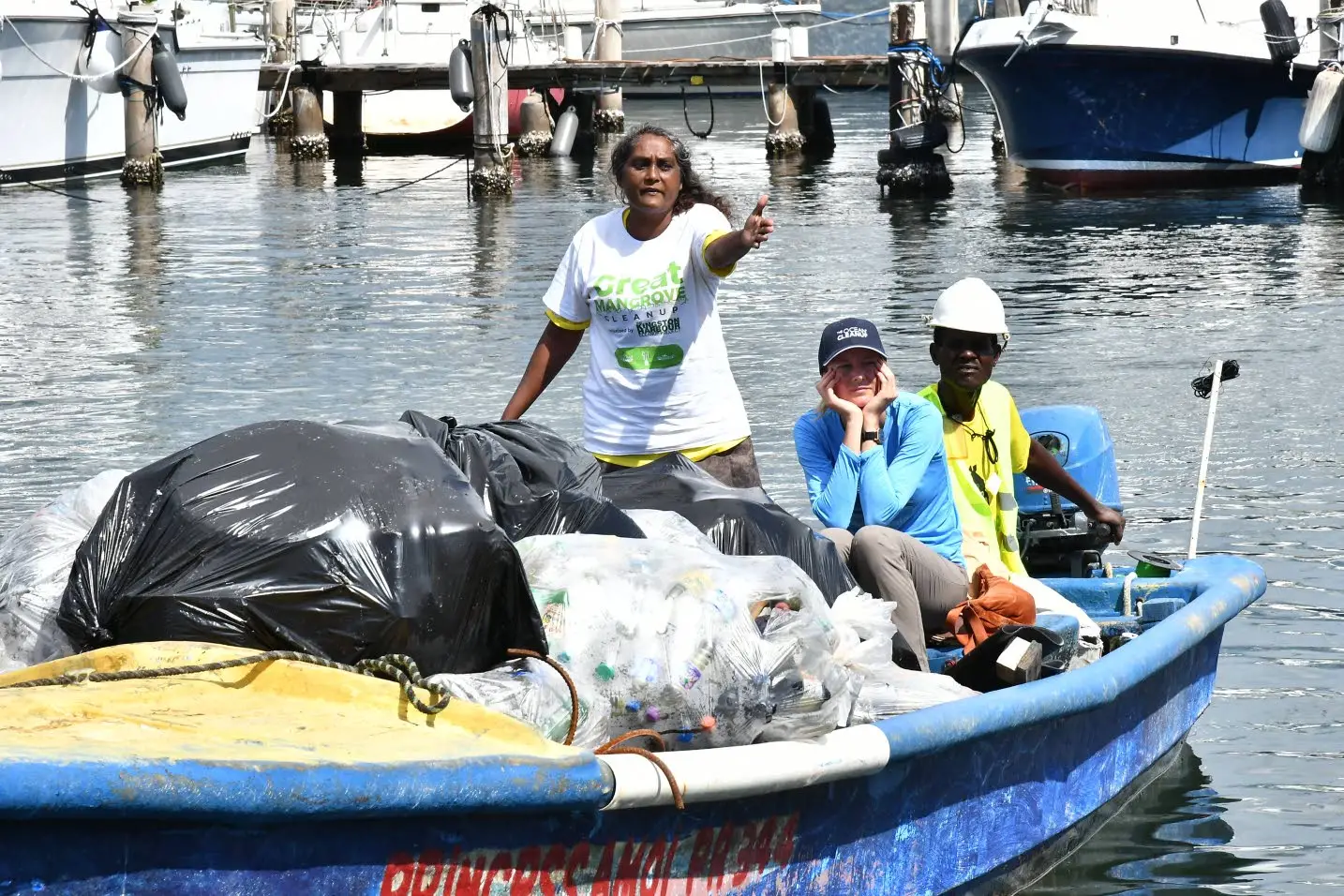
Volunteers return to shore with garbage collected during The Great Mangrove Clean-up Trash Tournament.
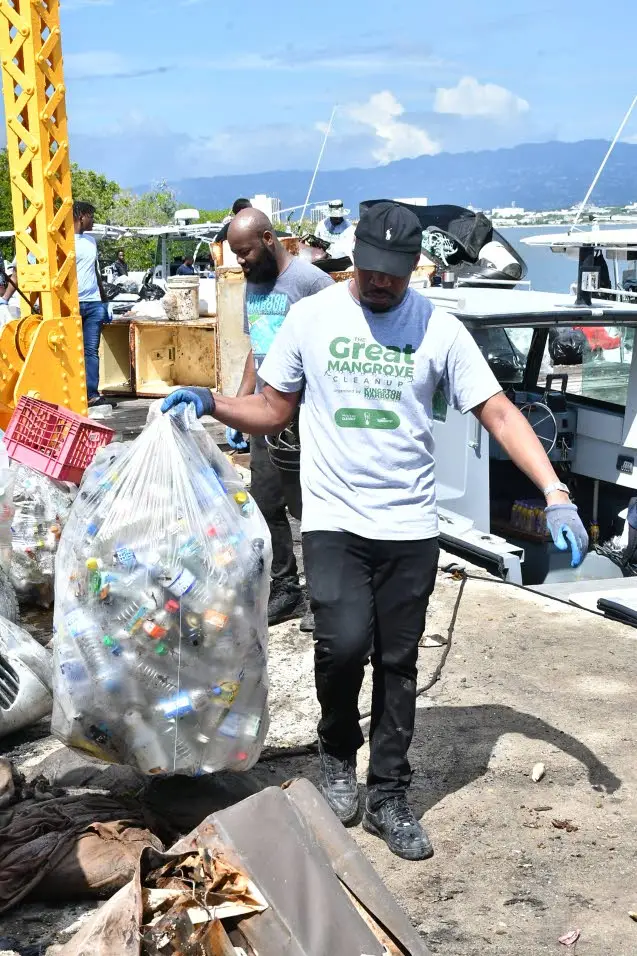
Volunteer Raheem Thomas takes in garbage collected from The Great Mangrove Clean-up Trash Tournament held Saturday at Royal Jamaica Yacht Club.
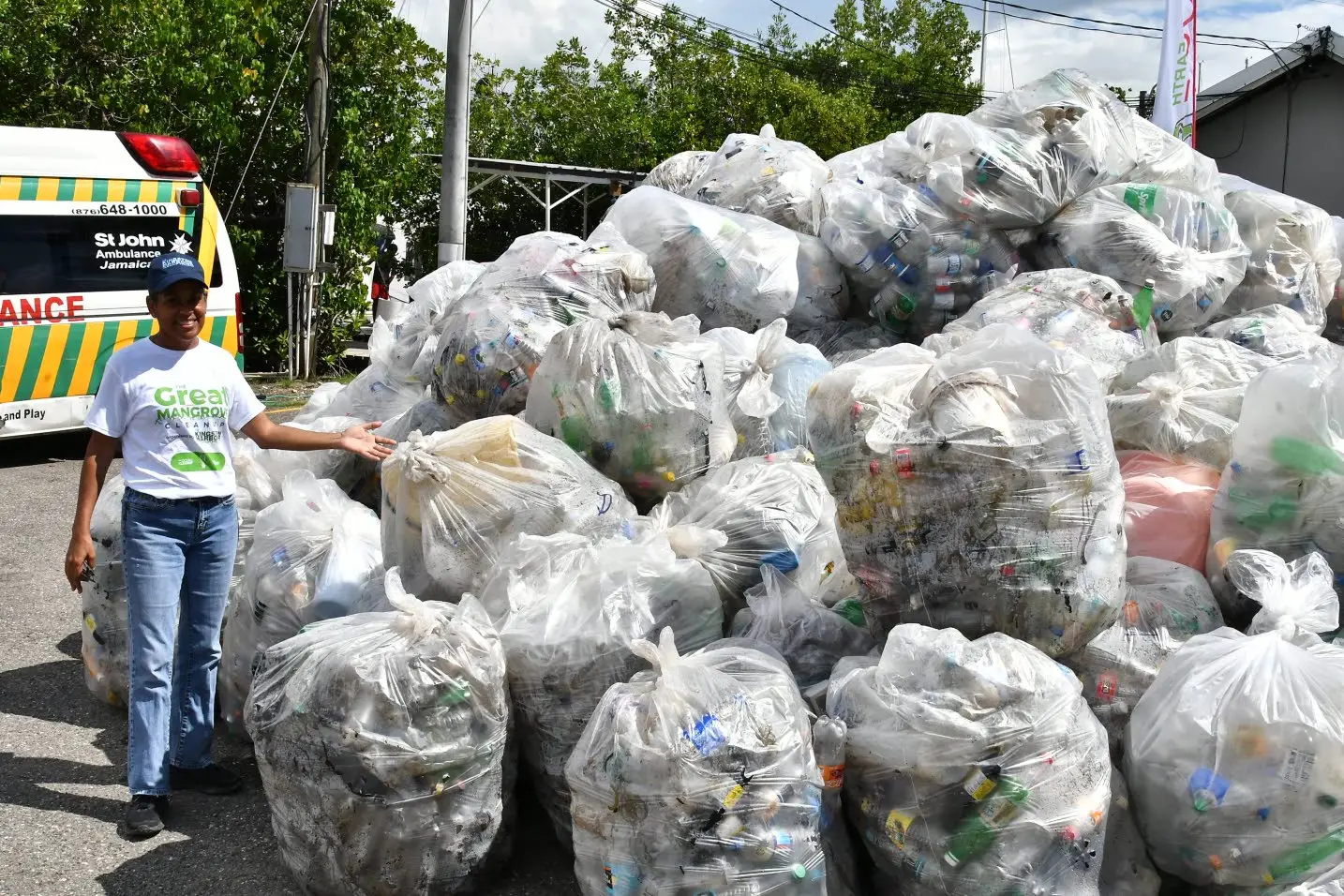
Co-founder of MDK Advisory and Consulting Limited Deika Morrison stands beside some of the garbage collected by volunteers during The Great Mangrove Clean-up Trash Tournament.
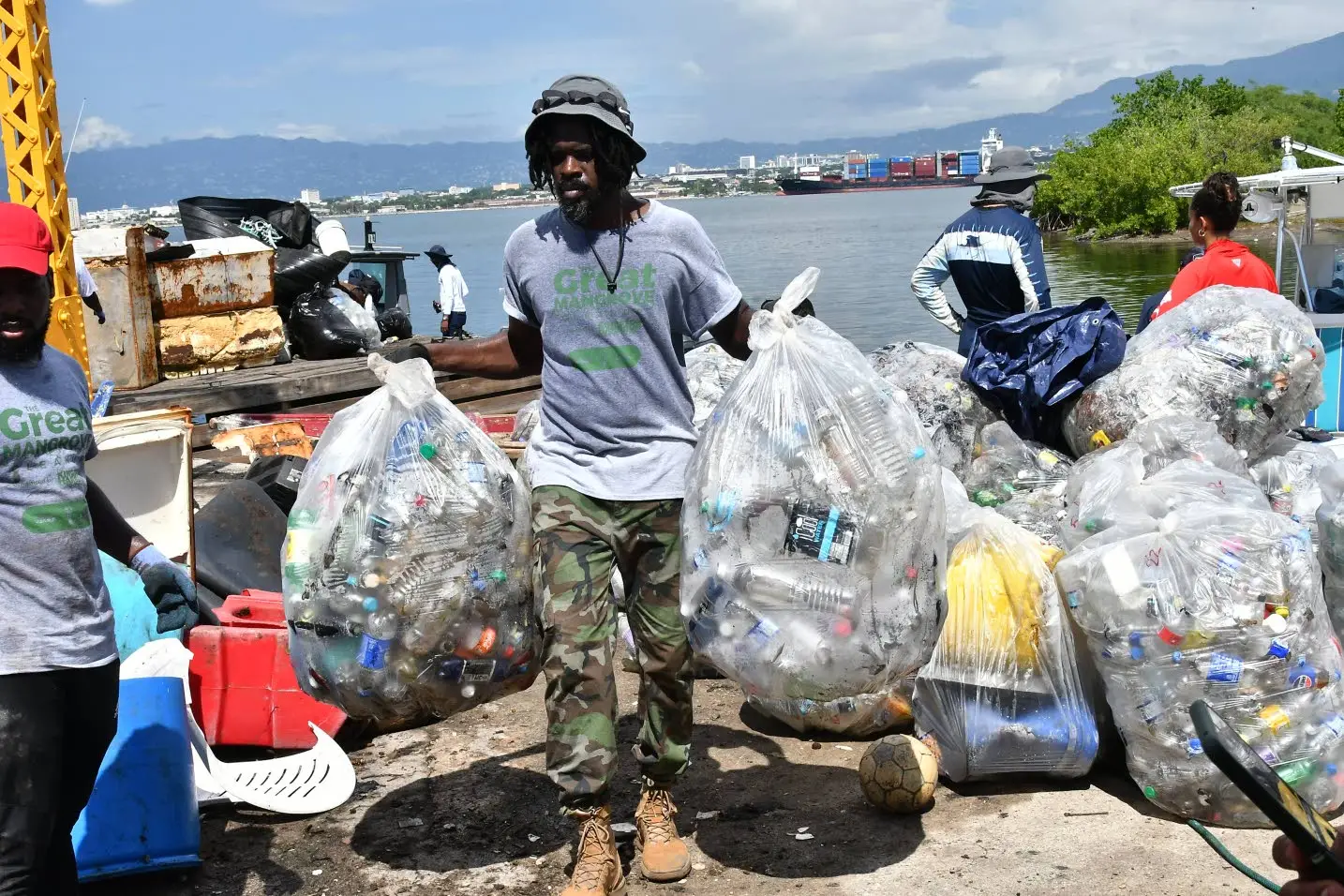
Volunteer David Sykes returns to shore with the garbage collected from the mangroves.
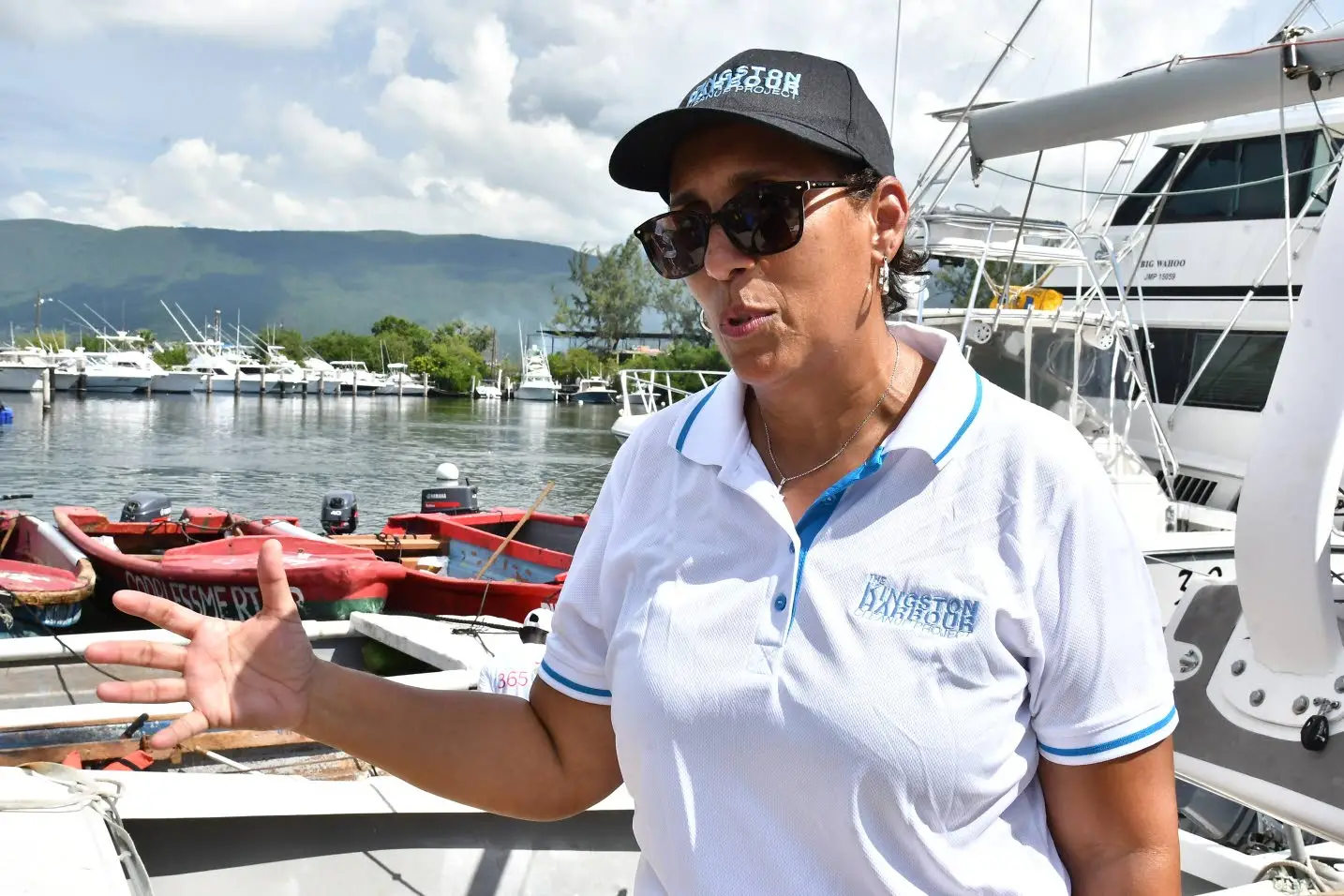
MAHFOOD…I feel like every beach clean-up, all of these kinds of clean-ups is never-ending because people are not disposing of their waste properly upstream
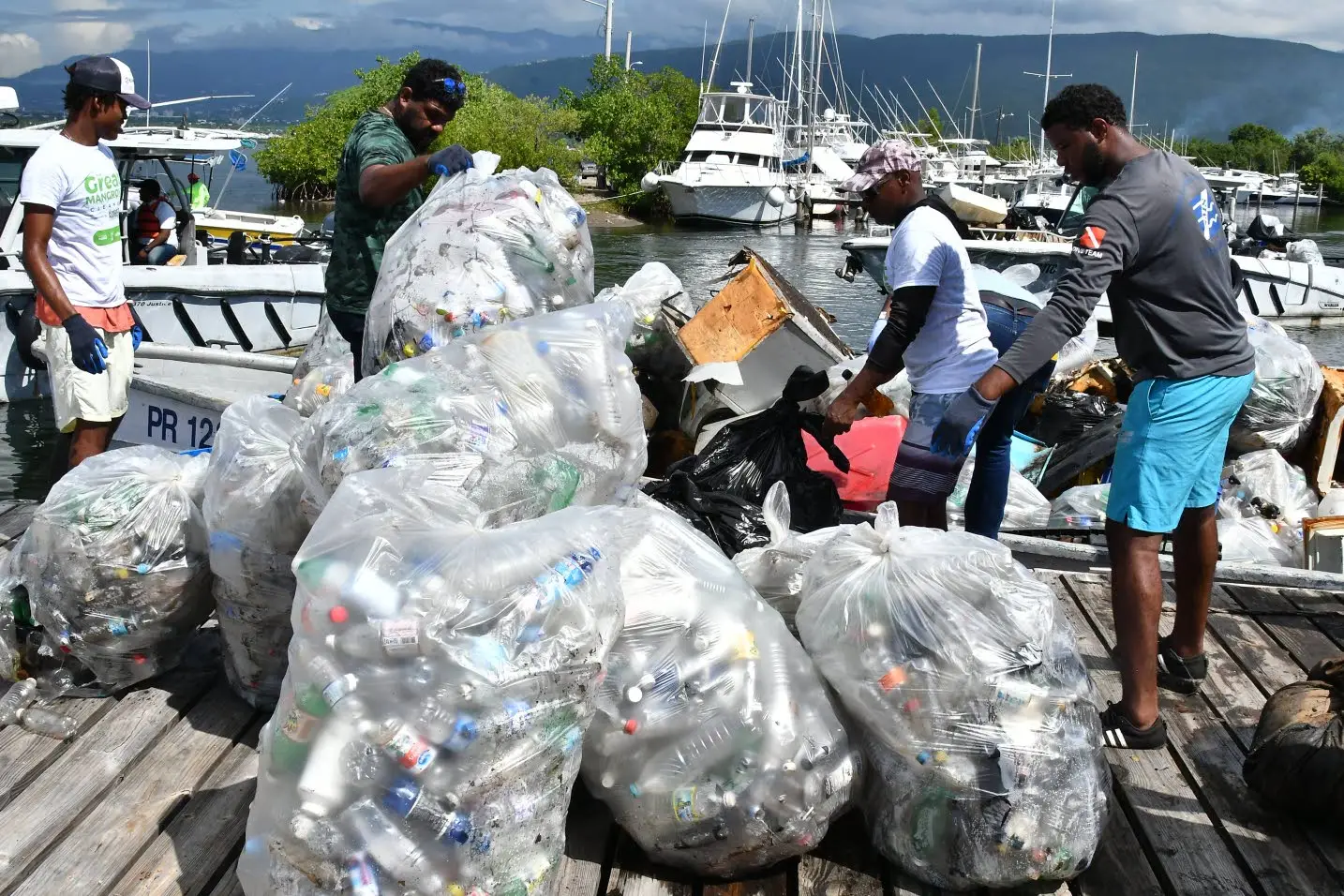
Volunteers take garbage back to shore from their clean-up efforts (Photos: Karl Mclarty)



